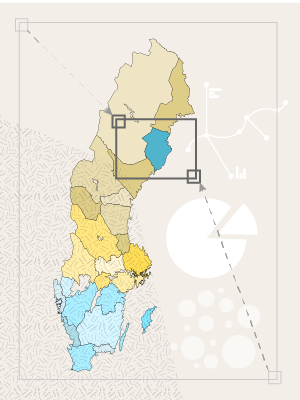
Our everyday lives unfold within local and regional structures: spaces that are made up of economic, environmental, cultural and social conditions that are unique to the place where we live. Yet, our understanding of these local and regional dimensions, their impact on the changing conditions of our everyday experiences and our ability to adapt to a changing economic landscape is still limited. This is problematic, given the marked inequalities we see across regions in terms of regional growth, wellbeing, environmental and social justice, employment opportunities and resilience. These differences are usually explained by size and unemployment levels, income distribution and innovation. However, recent advances in economic geography stress the importance of local and regional structures and networks in explaining these regional variations. In particular, economic activities and transformations within regions are seldom carried out in isolation, but more so in relation to and through different relations and links within and across regions. The performance of a specific firm or entrepreneur, or the possibilities of creating new growth paths are not dependent exclusively on individual characteristics, but also on the features and behaviours of the aggregated whole. Hence, at REC we strive to better understand how local and regional characteristics can facilitate, for instance, employment and re-employment possibilities, entrepreneurship, path creation, or finding productive ways for regional transformation and avoiding a lock-in.
Keywords: local and regional development; structural change; evolutionary economic geography; regional resilience; social and economic networks
The aim of the Swedish Labour Mobility Lab is to combine contemporary datasets and historical insights to map the labour mobility structures into expanding jobs in Sweden to increase our understanding of the ways in which skills, gender norms and geography affect who enters expanding jobs, in which ways, and under which working conditions. The Lab combines use of Statistics Sweden’s longitudinal register data on individuals and firms, analyses of big-data covering Swedish job ads recently made available by the Swedish Public Employment Service and exploration of historical datasets.
Shifting industrial and occupational structures put regional economic resilience, the ability of regions to withstand shocks and develop new growth paths, at the centre of attention for both academia and policy. In this project we study how the economic structure of regions conditions their resilience. Specifically, we analyse the network representations of local labour markets with respect to their robustness to economic shocks, their ability to provide work for different labour market groups, and their capacity to develop new growth paths in times of crisis and recovery.
This project analyses the relational aspects of sustainable transformations looking at global production networks and their relation with regional and local sustainability challenges and pathways. Sustainability transitions are geographical processes that encompass industrial and non-industrial pathways, and are embedded in multi-scalar networks that connect cities and regions in the Global North and South. Through case studies in Latin America, I investigate the establishment and evolution of regional economic activities internationally validated as sustainable, yet challenged by environmental and social justice disputes, revealing the unevenness of sustainable transitions. The aim is to understand the sustainability challenges of different regions, their current and potential pathways of green economic development, and the impact of global value chains and international markets on these pathways.
graphics and website by Sabi